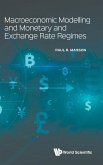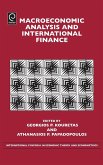How does globalization in goods and asset markets alter the nature of economic recessions and the choices facing macroeconomic policy makers? This volume presents empirical and theoretical contributions of economist Paul Bergin to this vital question. By a number of metrics, including trade volume and price convergence, national goods markets have become more globally integrated over time. The same is true for asset markets, which today function more as a single global marketplace. Rigorous theoretical models are developed to explore how international integration in these markets provides channels by which shocks driving recession in one country can be transmitted to other countries. These theoretical concepts can shed light on the Great Recession of the last decade, which has been referred to as the first truly global recession. Theory is also brought to bear to explore how these international spillovers and the resulting international co-movement in recessions can create incentives for policy makers to coordinate their monetary and fiscal policies with each other, as they deal with the challenge of managing their national economies.
Hinweis: Dieser Artikel kann nur an eine deutsche Lieferadresse ausgeliefert werden.
Hinweis: Dieser Artikel kann nur an eine deutsche Lieferadresse ausgeliefert werden.








